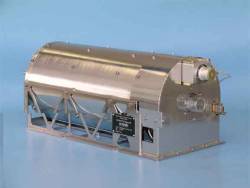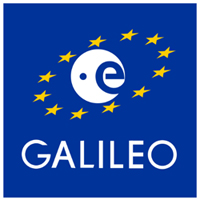 SpectraTime passive hydrogen physics package
SpectraTime passive hydrogen physics packageSpectraTime has announced that it signed an €11 million contract with Selex Galileo S.p.A to supply the core element of the passive hydrogen masers (PHMs) for the first 14 full operational capability (FOC) Galileo satellites.
A second contract to supply the secondary atomic clocks (Rubidium Atomic Frequency Standards) should be signed in early 2011, according to the Neuchâtel, Switzerland–based member company of the Orolia Group.
SpectraTime has announced that it signed an €11 million contract with Selex Galileo S.p.A to supply the core element of the passive hydrogen masers (PHMs) for the first 14 full operational capability (FOC) Galileo satellites.
A second contract to supply the secondary atomic clocks (Rubidium Atomic Frequency Standards) should be signed in early 2011, according to the Neuchâtel, Switzerland–based member company of the Orolia Group.
Spectratime’s rubidium and Selex/SpectraTime PHM clocks were successfully tested on board the first Galileo In-Orbit Validation Element satellites GIOVE-A and GIOVE-B.
The principle of GNSS positioning and navigation is based on the transmission to users of signals coming from at least four satellites. To obtain meter-level accuracy, these signals must be synchronized to a billionth of a second using the precise time reference provided by the atomic clocks on board each satellit.
“You basically have to protect very complex mission-critical clocks from any tiny source of perturbations such as magnetic fields, shock, vibration or thermal environmental factors,” says Fabien Droz, vice-president for space of SpectraTime. “This new contract confirms our leading position in supplying state-of-the-art clock performance and technologies for the space industry.”
Last summer, Selex Galileo SELEX Galileo, a Finmeccanica Company, signed a contract for more than €30 million with Surrey Satellite Technology Ltd (SSTL), the FOC satellite payload supplier, to provide the Galileo PHMs.
With a reported frequency stability better than 10-14 per day, eight PHMs are already being integrated into the payloads of the first four satellites of the Galileo IOV spacecraft that will be launched in 2011, with each satellite equipped with two PHMs as a master clock.
In a series of acquisitions since 2006, the Orolia group has established itself as a global provider of positioning, navigation, and timing solutions through operation of five companies: Spectracom, SpectraTime, T4Science, McMurdo and Kannad. Orolia’s headquarters are located in Les Ulis, (France).





